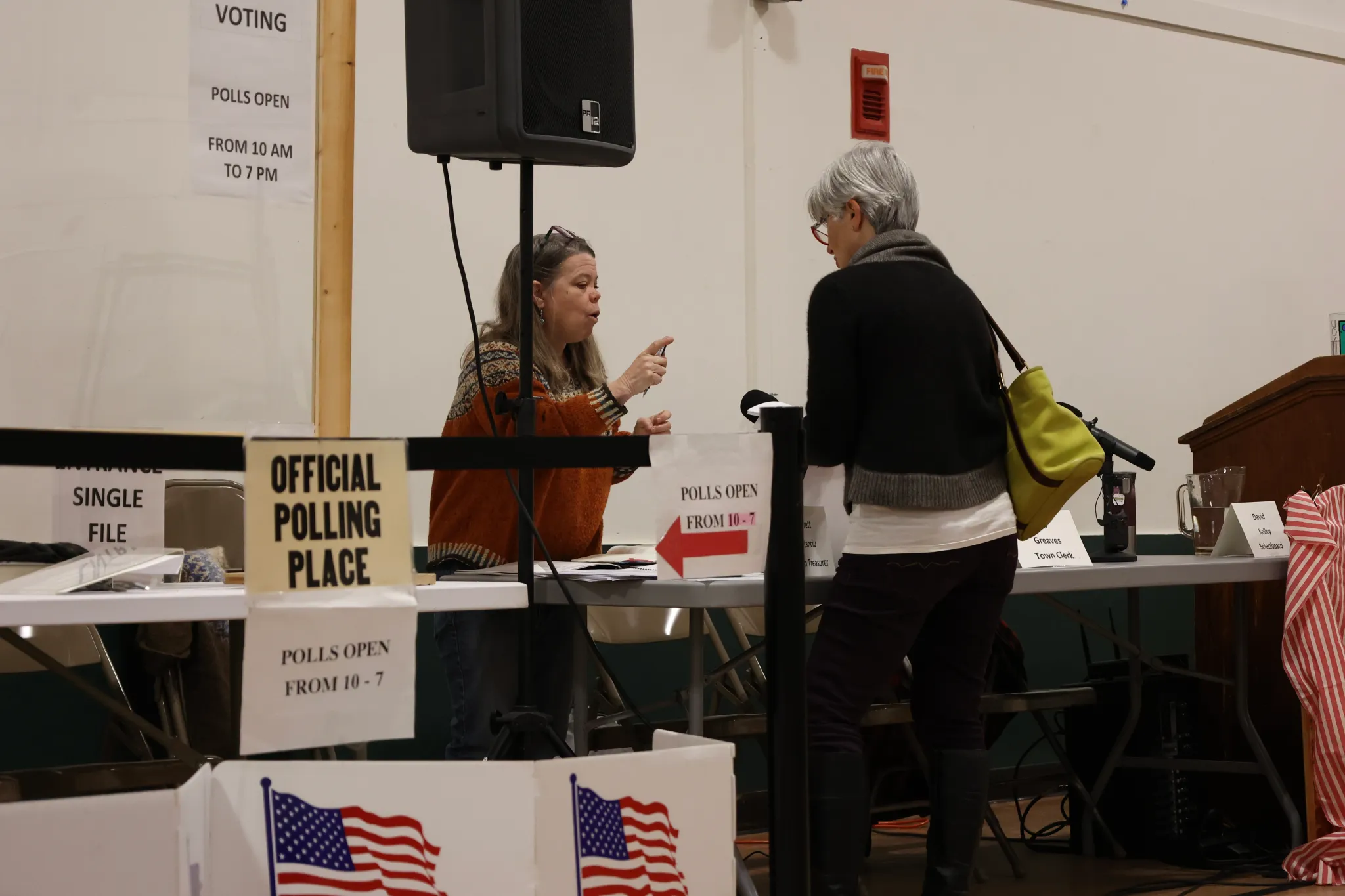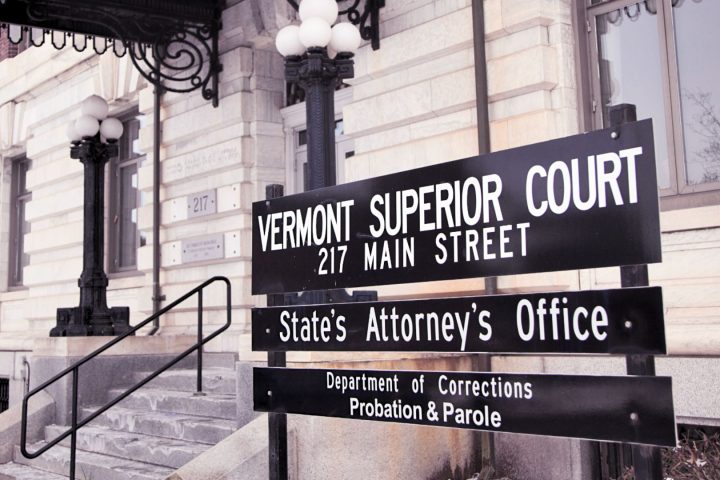By Noah Diedrich and Kathryn Stephan | Community News Service
GREENSBORO–Residents believe more voters than ever gathered in the Lakeview Elementary School gymnasium in Greensboro this Town Meeting Day. The room filled with muddy Carhartt overalls and children in snowsuits, while an underlying anxiety permeated the air — that the very school the meeting was held in may not be a school for much longer.
Mary Young, a Greensboro resident of 54 years, said that she attends Town Meeting every year. This year, she came to advocate for keeping Lakeview Elementary open, as selectboard meetings in recent months have considered closing it.
“I think there’s some really good possibilities for creative education here, and I think (the school) needs a little time to get going,” she said. “If you shut it down right now you could shut the doors on that possibility.”
Town residents also elected select board members and decided on a pollinator protection resolution designed to limit the usage of insecticides in the town.
Young, a local artist, has been a staple at the Town Meeting in Greensboro since she moved to the town in 1970. Then, she was a stranger.
“I was just contemplating my first town meeting when I hardly knew anybody,” she said. “I knew one person, I came with my baby.”
Nowadays, Young knows lots of the people at town meeting. Even so, she was surprised by how many people she did not know this year.
“This is extra crowded, and I think the school business might be responsible for that,” she said.
Residents at the town meeting displayed a strong will to protect their school, and 73-year-old Greensboro resident and retired teacher Penny Bretschneider made sure to point that out at her lunch table.
“She’s a teacher. She’s an artist. She’s a Minister. She’s president of the Historical Society,” Bretschneider said, casting a finger at members of her lunch table. “We all do our little bit to enrich this school.”
She added later, “If the school’s too big, (students) become just a number. I’ve taught in some large schools and a lot of little schools, and it’s very valuable to have a small school, regardless of the economic problems. From my point of view, I see the eight-person class as beneficial.”
Rosann Hickey, a Greensboro resident, teacher and Bretshneider’s friend, said that Lakeview Elementary is no “second-class school.”
“We’ve made truckers, we’ve made nurses, we’ve made lawyers,” she said. “This school is not dysfunctional. We just need to keep on keeping on.”
Incumbent Gary Circosta, who was not present at the meeting, and MacNeil, who serves on both the Development Review Board and the Hazen Union School Board, were both nominated for the first of two open select board seats. MacNeil won in a tight contest, capturing 58 votes of the 108 total.
After losing his seat to MacNeil, Circosta was again nominated against another incumbent, Ellen Celnik. Celnik emerged as the winner, securing another term.
Celnik, a now re-elected member of the Selectboard, said that the flood damages from the summer had greatly burdened the town.
“I think the challenge that’s going to be facing the town is how we’re going to pay the million dollar debt for (the Federal Emergency Management Agency),” she said. “Small towns like this, we can’t afford to shell out that kind of money.”
Rep. Katherine Sims of Greensboro updated the crowd on the goings-on at the state house in Montpelier. She discussed the issues faced by the town: housing, flood recovery and the school budget.
“The last couple of years have been tough, a real test of our grit. We’re fighting for a future in which all Greensboro residents can thrive,” Sims said.
Patrick Shattuck, the Executive Director of Rural Edge, a housing and community development company, also stood to discuss the renovations to the town hall, which is set to become a residential building by the summer of 2026. The project is going to cost an estimated $10 million and create 20 apartment units.
Brent McCoy, a Greensboro resident of 16 years, said he supported the pollinator protection measure, though he didn’t know much about it.
“If there’s any action I can take, it’s always ecology before economy,” he said.
Also at the meeting, Selectboard Chair Peter Romans was presented with the Greensboro Person of the Year award.
Noah Diedrich and Kathryn Stephan reported this story on assignment from The Hardwick Gazette. The Community News Service is a program in which University of Vermont students work with professional editors to provide content for local news outlets at no cost.







